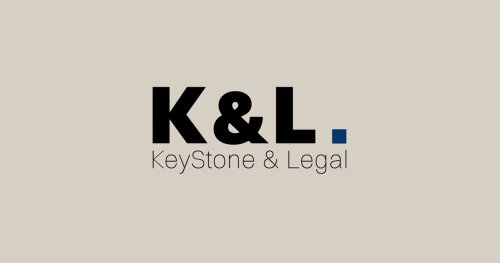Best FDA Law Lawyers in South Korea
Share your needs with us, get contacted by law firms.
Free. Takes 2 min.
Or refine your search by selecting a city:
List of the best lawyers in South Korea
About FDA Law in South Korea
FDA Law in South Korea is primarily focused on the regulation, approval, safety, and monitoring of food, pharmaceuticals, medical devices, cosmetics, and related products. The role of the Food and Drug Administration is carried out by the Ministry of Food and Drug Safety (MFDS), which establishes rules to ensure that products are safe, effective, and properly labeled. The MFDS oversees clinical trials, imports and exports, manufacturing processes, labeling requirements, product recalls, and various compliance measures. This legal field is crucial due to the direct impact these products have on public health and safety.
Why You May Need a Lawyer
There are several situations where individuals and businesses may require the guidance of an attorney specializing in FDA Law in South Korea. Common scenarios include:
- Launching a new food, drug, cosmetic, or medical device into the South Korean market
- Dealing with regulatory compliance during manufacturing or import-export processes
- Navigating product approval or registration with the MFDS
- Responding to MFDS inspections, warnings, or recalls
- Defending against enforcement actions or penalties from the MFDS
- Addressing intellectual property disputes related to regulated products
- Managing product liability or consumer safety cases
An experienced FDA Law attorney can help you understand complex regulations, avoid costly mistakes, and advocate for your interests if legal challenges arise.
Local Laws Overview
South Korea has a comprehensive regulatory system managed mainly by the MFDS. Key statutes and regulations include:
- Food Sanitation Act: Covers the safety, standards, and labeling for all foods, including dietary supplements and functional foods.
- Pharmaceutical Affairs Act: Governs the approval, manufacturing, import, and sale of pharmaceutical products, including approval for clinical trials.
- Medical Device Act: Outlines the requirements for registration, approval, and monitoring of medical devices and in vitro diagnostics.
- Cosmetic Act: Focuses on the safety, classification, and marketing of cosmetic products.
- Special Acts: Such as the Act on Safety of Biotechnological Products, related to advanced therapies and biotechnology-based products.
These laws are supported by detailed enforcement decrees and guidelines issued by the MFDS, which frequently updates regulations in response to advances in science, technology, and international standards. Importantly, foreign companies must often appoint a local agent and comply with unique Korean regulatory procedures.
Frequently Asked Questions
What is the role of the Ministry of Food and Drug Safety (MFDS) in South Korea?
The MFDS is the main regulatory authority responsible for ensuring the safety, efficacy, and proper labeling of food, drugs, cosmetics, and medical devices in South Korea.
Do all imported products need MFDS approval before being sold in South Korea?
Yes, most regulated products such as pharmaceuticals, medical devices, cosmetics, and certain foods require prior approval or registration with the MFDS before they can be legally marketed.
What are the penalties for non-compliance with FDA Law regulations?
Penalties can include fines, product recalls, suspension or cancellation of licenses, criminal liability, and import bans, depending on the severity of the violation.
How long does the product approval process usually take?
Approval timelines vary based on the type of product. For new pharmaceuticals and medical devices, the process can take several months to over a year. Simpler products might have shorter review periods.
Can foreign manufacturers sell directly in Korea without a local presence?
In most cases, foreign manufacturers must appoint a local agent or establish a legal entity in South Korea to handle registration, compliance, and market activities.
Are there language requirements for product labels and documents?
Yes, all product labeling and submission documents typically must be in Korean, and the MFDS requires Korean translations for approvals and market entry.
How are clinical trials regulated in South Korea?
Clinical trials for pharmaceuticals and medical devices must be approved and monitored by the MFDS, with strict adherence to local and international Good Clinical Practice (GCP) standards.
What happens if a product is found unsafe after it reaches the market?
The MFDS can mandate a recall, issue safety warnings, or ban the product. Companies are responsible for reporting adverse events and cooperating with investigations.
What documentation is needed for product registration?
Requirements depend on the product but often include scientific data, safety and efficacy reports, manufacturing process details, labeling information, and proof of compliance with relevant standards.
How often do laws and regulations change in this area?
Regulations are updated frequently to reflect new scientific knowledge and international trends. It is important to monitor the MFDS website or consult legal counsel for the latest developments.
Additional Resources
For further information and support, consider reaching out to the following organizations:
- Ministry of Food and Drug Safety (MFDS) - Main government body for food and drug regulation
- Korea Health Industry Development Institute (KHIDI) - Resources and support for the health industry
- Korea Pharmaceutical and Bio-Pharma Manufacturers Association (KPBMA) - Industry advocacy and guidance
- Korea Medical Devices Industry Association (KMDIA) - Support for medical device companies
- Korea Consumer Agency - Resources for consumer rights and product safety information
- Embassies and foreign trade offices - May provide information on regulatory obligations for foreign businesses
Next Steps
If you need legal assistance regarding FDA Law in South Korea, start by identifying your specific legal needs, such as product approval, compliance reviews, or defense against enforcement actions. Gather all relevant documents and prepare a summary of your products and operations. Research and select a qualified attorney or law firm experienced in FDA Law and South Korean regulations. Arrange an initial consultation to discuss your situation in detail. Staying proactive and seeking expert legal guidance early can help you avoid costly delays and penalties.
Lawzana helps you find the best lawyers and law firms in South Korea through a curated and pre-screened list of qualified legal professionals. Our platform offers rankings and detailed profiles of attorneys and law firms, allowing you to compare based on practice areas, including FDA Law, experience, and client feedback.
Each profile includes a description of the firm's areas of practice, client reviews, team members and partners, year of establishment, spoken languages, office locations, contact information, social media presence, and any published articles or resources. Most firms on our platform speak English and are experienced in both local and international legal matters.
Get a quote from top-rated law firms in South Korea — quickly, securely, and without unnecessary hassle.
Disclaimer:
The information provided on this page is for general informational purposes only and does not constitute legal advice. While we strive to ensure the accuracy and relevance of the content, legal information may change over time, and interpretations of the law can vary. You should always consult with a qualified legal professional for advice specific to your situation.
We disclaim all liability for actions taken or not taken based on the content of this page. If you believe any information is incorrect or outdated, please contact us, and we will review and update it where appropriate.
Browse fda law law firms by city in South Korea
Refine your search by selecting a city.

















